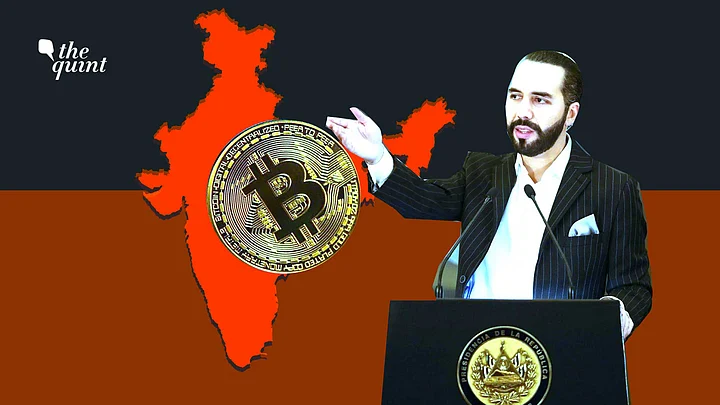El Salvador on Wednesday, 9 June, became the first country to accept Bitcoin as a legal tender officially.
However, experts suggest it might not be the last.
Prominent market analysts and Blockchain experts around the globe believe that other countries in Latin America might follow suit, especially after Paraguay Congressman Carlos Rejala expressed his interest in crypto-assets.
Meanwhile, El Salvador has announced that people who invest in Bitcoin there will get the country's citizenship. “People investing three Bitcoins in country's economy will be given citizenship by the government,” President Nayib Bukele said on Wednesday.
Why Did El Salvador Legalise Bitcoin?
It is worth noting that El Salvador does not have a currency of its own. The country was dollarised in 2011 and follows the Monetary Policy of the US Federal Reserve.
In the aftermath of the pandemic, the Federal Reserve Board has been reckless in pursuing quantitative easing to stimulate economic activity .
Doling out stimulus packages has become a norm in the United States. Being tied to the Fed Monetary Policy, El Salvador had to resort to an alternative to ensure economic stability of the country.
The decision to recognise Bitcoin as a legal tender would not only shield El Salvador from the vagaries of Fed’s decision making, but also bring those unbanked to the fold of financial inclusion.
The President of El Salvador has made it clear that the US Dollar and Bitcoin would co-exist together. Decoupling from the dollar, nowhere, seems to be on the horizon.
Countries That Might Follow Suit
Panama, Argentina, Brazil, Mexico and Nicaragua have all spoken favourably about Bitcoin, with some pledging to introduce legislature that is favourable to cryptocurrencies.
Panama Congressman Gabriel Silva tweeted: “This is important. And Panama cannot be left behind. If we want to be a true technology and entrepreneurship hub, we have to support cryptocurrencies.”
Prominent market analyst Plan B wrote,“Other countries must follow El Salvador FAST!! Paraguay, Argentina, Panama, Brazil, Nicaragua. El Salvador’s decision to make Bitcoin legal tender has geopolitical implications. US will react, with IMF or aircraft carriers. Easy to attack one, difficult to attack many.
Sharat Chandra, a Blockchain and Emerging Tech Evangelist told The Quint that countries with a significant unbanked population, such as Nigeria and Kenya, can emulate the El Salvador model to facilitate remittances at an affordable cost and contribute to GDP significantly.
What About India?
Chandra believes that when a sovereign nation recognises Bitcoin as a legal tender, countries across the globe including India will have to take cognisance of the inevitable disruption in the realm of monetary and economic spheres .
According to a World Bank Report, India received 83 billion USD in 2020. "With a significant Indian diaspora across the globe and the global heft the country has, India should not shy away from embracing digital currencies to lower cost of remittances and ensure real-time cross border payments", Chandra said.
As a member of G20, India has to commit to the broader mandate to bring transparency and affordability to cross border payments including remittances.
In India, there is a consensus in the blockchain and crypto community to "classify Bitcoin and other digital currencies as an “Asset” class and apply taxation rules accordingly. It wouldn’t be prudent to apply the El Salvador model in the Indian context", Chandra explained.
However, the role of distributed ledger technology and digital currencies in removing friction in remittances , cross border trade and MSME finance should not be ignored. In order to achieve the goal of a 5 trillion dollar economy by 2025, India needs to address the financing gap of 250-500 billion USD for small and medium sector enterprises.
“India can bridge the SME financing gap by luring the new breed of global crypto investors . Let’s use IndiaStack ,particularly UPI, Aadhaar, GST, and build on informational collateral for potential investors and lenders. Policymakers should treat crypto as a viable means to solve issues plaguing financial inclusion of MSMEs.”Sharat Chandra, a Blockchain and Emerging Tech Evangelist
A top official on the condition of anonymity told The Quint that the Indian government won't consider accepting Bitcoin as a legal tender because acceptance might affect the position of Indian rupee.
But some reports suggest India may recognise Bitcoin as an asset class.
Additionally, Ketan Surana, Director and chief financial officer, Coinsbit, and Member, Internet and Mobile Association of India said, “We can definitely say that the new committee which is working on cryptocurrencies is very optimistic on cryptocurrency regulation and legislation... A new draft proposal will soon be in the Cabinet, which will look into the overall scenario and take the best step forward. We are very hopeful that the government will embrace cryptocurrencies and blockchain technologies”, reported The New Indian Express.
